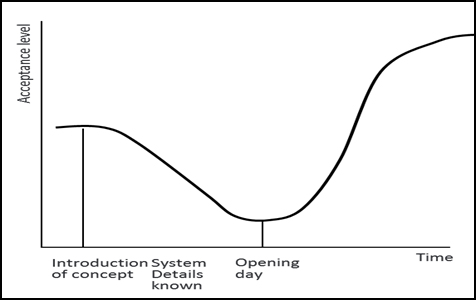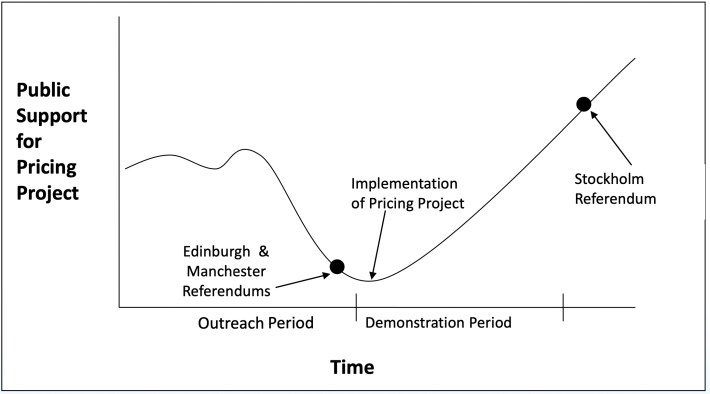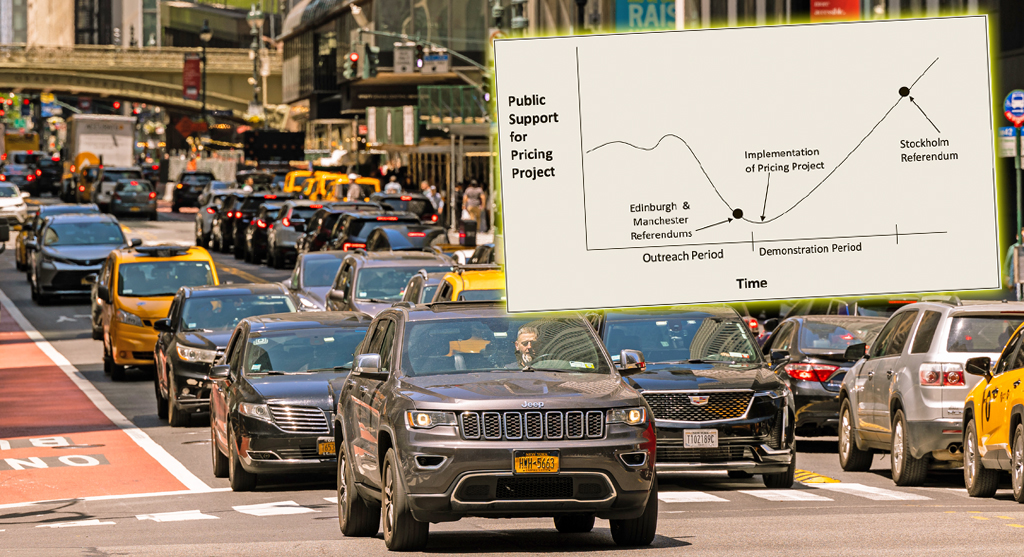Did you see the new poll showing congestion pricing is really unpopular?
Ignore it!
As readers of Streetsblog well know, change — especially the introduction of a new fee — is always unpopular before it is implemented.
Protected bike lanes? Remember how the one on Prospect Park West was so controversial that a former Department of Transportation commissioner conspired with pro-car lawyers to try to block them? Now, it's the most popular thing in the neighborhood.
Citi Bike? Remember how naysayers predicted blood in the streets and broken bikes littering every corner of the city? Now, they're among the most-used transportation method around. And there have been very few fatalities.
Congestion pricing? Yes it is true that a new Siena poll out that came out yesterday — and was much hyped by the anti-congestion pricing New York Post — shows that 64 percent of New York City voters oppose congestion pricing, and just 33 percent support it.
But that level of opposition is not only predictable, but also conquerable ... once congestion pricing starts.
Insiders call it "the valley of political death" — and that's where we are right now. Based on experience from both England and Stockholm, support for congestion pricing is always low before it's implemented. And then once residents see the benefits, whether in the form of lower pollution, quieter streets, reduced traffic or funding for public transportation projects, they love it.
It's all represented in this famous chart from congestion pricing proponent Daniel Firth:

We're at the low point now: Just before opening day.
But, a skeptic would ask, how do we know that the "acceptance level" will rise over time? I mean, we're New York, after all. There's no place on earth like New York, right?
Perhaps, but Stockholm (where I will soon be doing on-the-ground reporting thanks to a grant from the Swedish-American Bicentennial Fund) provides a great example. In 2006, Swedes voted to implement a congestion tax pilot program in the capital — and then to hold a referendum after the six-month trial.
In Stockholm, a majority of 53 percent supported the congestion toll.
Now, in fairness, a majority of suburbanites opposed the toll, but only narrowly, and by less than they originally hated the toll, having seen its benefits (and, in Sweden's case, the money was plowed back into roadway construction, not transit, so drivers could see an additional benefit).
Meanwhile in Edinburgh and Manchester, voters held a referendum before congestion pricing was implemented — and they rejected it. Of course they did; they hadn't seen the benefits.
Here's how academics characterized it:

So don't worry that so many people say they oppose congestion pricing. Most of them will be won over soon enough.
And in other news from an exceptionally slow day on the livable streets front (hmm, what else was going on...?):
- Hell Gate did a winners and losers piece about the state budget.
- The alarming EV charging expansion continues. Remember: Any public space that is set aside for charging is de facto set aside for cars, not people. (Crain's)
- We have a new reporter! Meet Sophia Lebowitz on our staff page.
- City Journal might be the last place on earth that finds Woody Allen relevant (especially for his urbanism), but Stephen Eide's piece about the anti-bike Midwood macher did end with a great observation: "We don’t turn to Woody Allen for policy prescriptions, though. He never had much advice to offer about how to save the city."
- And, finally, check out the blink-and-you'll-miss-it acknowledgment from the Mets that getting around on two wheels "is always faster" than driving. But if you know New York, you know that!
IYKNYYK: If you know New York, you know.
— New York Mets (@Mets) April 19, 2024
🔗👉 https://t.co/dJI9OgUI32 pic.twitter.com/upb3kR6AS8






